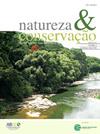Belo Monte Dam impacts: Protagonism of local people in research and monitoring reveals ecosystem service decay in Amazonian flooded vegetation
IF 3.5
2区 环境科学与生态学
Q1 BIODIVERSITY CONSERVATION
引用次数: 0
Abstract
The Amazonian river-floodplain systems face unprecedented threats from the construction of hydroelectric power plants aimed at meeting Brazil's energy demands. However, evidence suggests that the long-term economic, social, and environmental damages outweigh the hydroelectricity advantages. The Volta Grande do Xingu was dammed and its water diverted to energy production, resulting in habitat loss due to the altered hydrological regimes. Flooded environments are vital for ecosystem services, including food production, biogeochemical cycles, and climate regulation. The construction and operation of hydropower plants disrupt these services, affecting Indigenous populations and ribeirinhos communities. Environmental Impact Assessments often underestimate these impacts, and the responsibility for monitoring falls on the companies themselves, leading to conflicts of interest and inadequate reporting. This triggered an Independent Territorial Environmental Monitoring (MATI-VGX) initiative, led by Indigenous and ribeirinhos researchers in partnership with academics. MATI-VGX's observations reveal changes in flooded ecosystems, including increased seedling density and leaf-cutter ant colonies in the understory, changes in plant species composition, disruption of the phenological cycle, and vegetation mortality. Moreover, reduced fruit dispersion disrupts the aquatic food web and threatens Indigenous and ribeirinhos food sources. These changes indicate ecosystem decay and disruption of ecological processes. Importantly, these impacts are noticeable after a short period of water diversion, highlighting the urgency of mitigation efforts. A research agenda must quantify tree mortality, understand physiological mechanisms, and assess the cascade effects on wildlife and food security. Ultimately, restoring natural hydrological patterns is essential for preserving Amazonian biodiversity and the livelihoods of Indigenous and ribeirinhos communities.

贝罗蒙特大坝的影响:当地居民在研究和监测中的主导作用揭示了亚马逊淹没植被的生态系统服务衰退
为了满足巴西的能源需求,亚马逊河-洪泛区系统面临着前所未有的水力发电厂建设的威胁。然而,有证据表明,长期的经济、社会和环境损害超过了水力发电的优势。新古河被筑坝,其水被用于能源生产,由于水文制度的改变,导致栖息地的丧失。洪水环境对生态系统服务至关重要,包括粮食生产、生物地球化学循环和气候调节。水电站的建设和运行扰乱了这些服务,影响到土著居民和里贝林霍斯社区。环境影响评估往往低估了这些影响,而监督的责任落在了企业自己身上,导致了利益冲突和报告不足。这引发了一项独立领土环境监测(matii - vgx)倡议,由土著和里贝林霍斯的研究人员与学术界合作领导。mti - vgx的观测结果揭示了洪水生态系统的变化,包括林下幼苗密度和切叶蚁群的增加、植物物种组成的变化、物候循环的破坏和植被死亡率。此外,水果分散的减少破坏了水生食物网,威胁到土著和ribeiinhos的食物来源。这些变化表明生态系统的衰退和生态过程的破坏。重要的是,在短期调水之后,这些影响是显而易见的,突出了缓解工作的紧迫性。研究议程必须量化树木死亡率,了解生理机制,并评估对野生动物和粮食安全的级联效应。最终,恢复自然水文模式对于保护亚马逊的生物多样性以及土著和里贝林霍斯社区的生计至关重要。
本文章由计算机程序翻译,如有差异,请以英文原文为准。
求助全文
约1分钟内获得全文
求助全文
来源期刊

Perspectives in Ecology and Conservation
Environmental Science-Nature and Landscape Conservation
CiteScore
7.80
自引率
4.30%
发文量
46
审稿时长
59 days
期刊介绍:
Perspectives in Ecology and Conservation (PECON) is a scientific journal devoted to improving theoretical and conceptual aspects of conservation science. It has the main purpose of communicating new research and advances to different actors of society, including researchers, conservationists, practitioners, and policymakers. Perspectives in Ecology and Conservation publishes original papers on biodiversity conservation and restoration, on the main drivers affecting native ecosystems, and on nature’s benefits to people and human wellbeing. This scope includes studies on biodiversity patterns, the effects of habitat loss, fragmentation, biological invasion and climate change on biodiversity, conservation genetics, spatial conservation planning, ecosystem management, ecosystem services, sustainability and resilience of socio-ecological systems, conservation policy, among others.
 求助内容:
求助内容: 应助结果提醒方式:
应助结果提醒方式:


